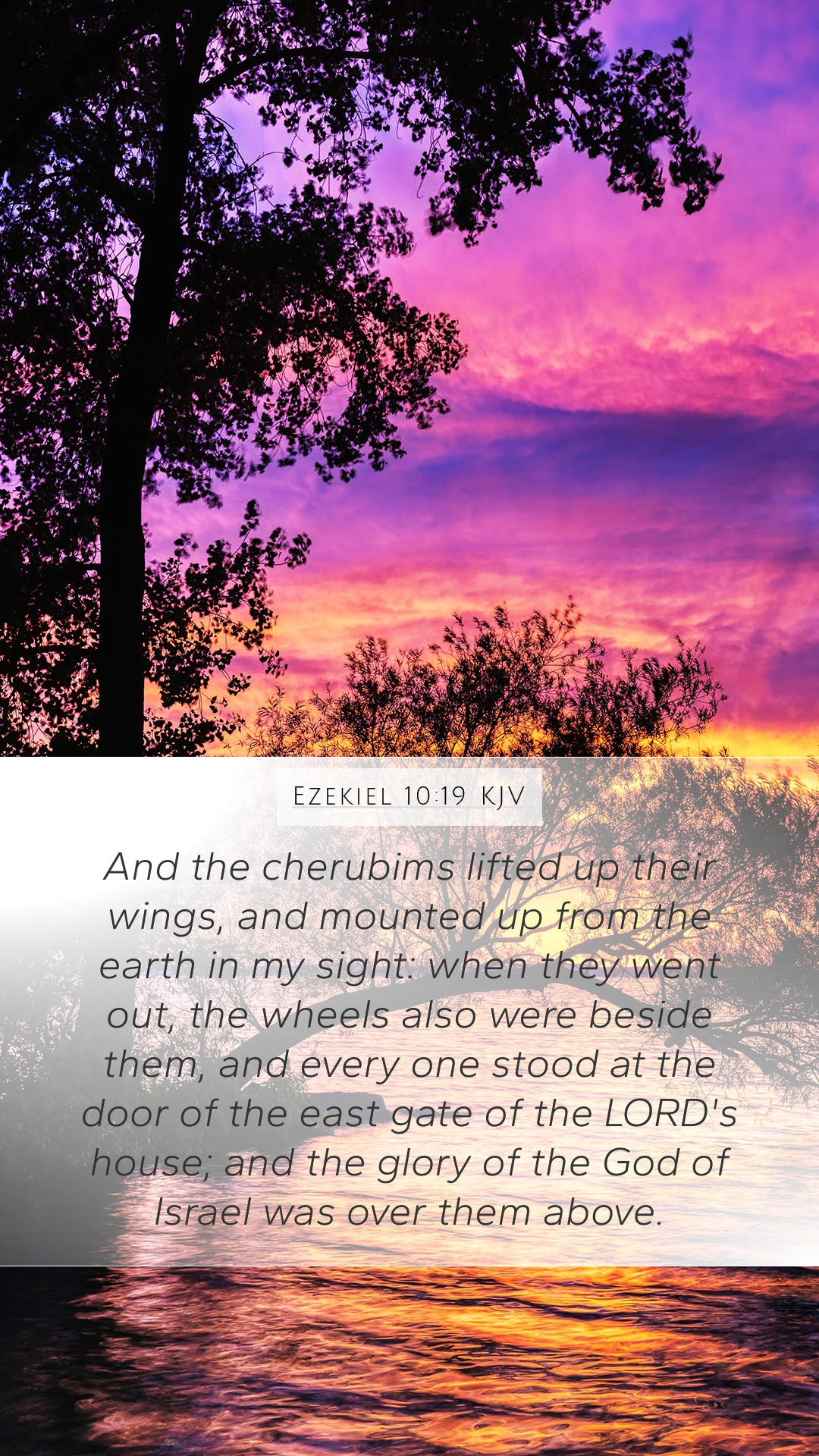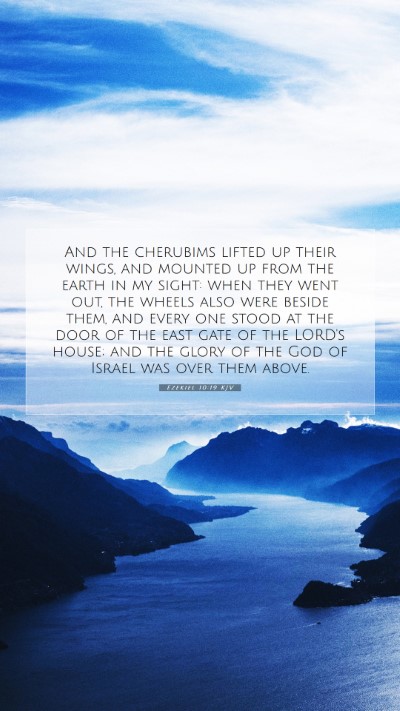Understanding Ezekiel 10:19
Bible Verse: Ezekiel 10:19
The passage reads:
"And the cherubim lifted up their wings, and mounted up from the earth in my sight: when they went out, the wheels also were beside them: and every one stood at the door of the east gate of the LORD's house; and the glory of the God of Israel was over them above."
Overview of the Verse
Ezekiel 10:19 is a profound passage that depicts a significant moment in the vision of the prophet Ezekiel, where the celestial beings known as cherubim demonstrate movement, indicating divine action and presence. This verse describes the intricacies of God’s glory as it relates to the temple, highlighting themes of judgment and divine presence.
Insights from Commentaries
When we delve into the Bible verse commentary provided by respected theologians such as Matthew Henry, Albert Barnes, and Adam Clarke, we can glean deeper meanings from this passage.
Matthew Henry's Commentary
Matthew Henry elaborates on this verse by emphasizing the idea of divine judgment and the mobility of God's presence. He notes that the movement of the cherubim signifies God's readiness to act in accordance with His will. The image of the cherubim rising reflects God's authority and sovereignty over Israel and the looming judgment due to their rebellion.
Albert Barnes' Notes
Albert Barnes offers a practical interpretation of the verse, highlighting the cherubim's role as guardians of divine glory. He points out that their ascent signifies a withdrawal of God's presence from the temple, thus sending a prophetic message to the Israelites about the consequences of their actions. Barnes emphasizes the necessity of maintaining faithfulness to God's covenant to retain His presence.
Adam Clarke's Commentary
Adam Clarke provides a historical context that enhances our Bible study insights. He discusses the significance of the east gate in connection to the impending calamity that was to come upon Jerusalem. Clarke also emphasizes the visual nature of Ezekiel's visions, which serve to communicate profound spiritual truths through vivid imagery.
Key Themes and Symbolism
- Divine Mobility: The imagery of the cherubim reflects God's dynamic relationship with His people and His active role in their lives.
- God's Glory: The glory of the Lord signifies His holiness and presence, which is crucial for understanding God’s connection to the temple and His people.
- Judgment and Hope: While the revelation of God's glory comes with a warning of judgment, it also holds the possibility of restoration through repentance.
Application of the Verse
This verse invites readers to consider the meaning of Bible verses in light of their own lives and communities. The themes of God's presence and judgment can be a call to reflect on personal faithfulness and the state of one’s spiritual life.
Related Cross References
- Ezekiel 1:20-21: Describes the movement of the living creatures and how they were guided by the Spirit.
- Revelation 4:6-8: Further elaborates on the imagery of creatures around the throne of God, paralleling the cherubim.
- Isaiah 6:1-4: Discusses the vision of God’s glory and the seraphim, emphasizing God's holiness.
Conclusion
In summary, Ezekiel 10:19 serves as a rich source for Bible verse interpretations that can enhance our Bible study materials. By reflecting on the insights provided in various commentaries, readers can achieve a broader and deeper understanding of God's nature, His actions, and the implications for their faith journey.
Further Studies
For those participating in Bible study groups or engaging in online Bible study, this verse can be a starting point for discussions about the nature of God's presence, the importance of obedience, and the symbolism found throughout Scripture.


